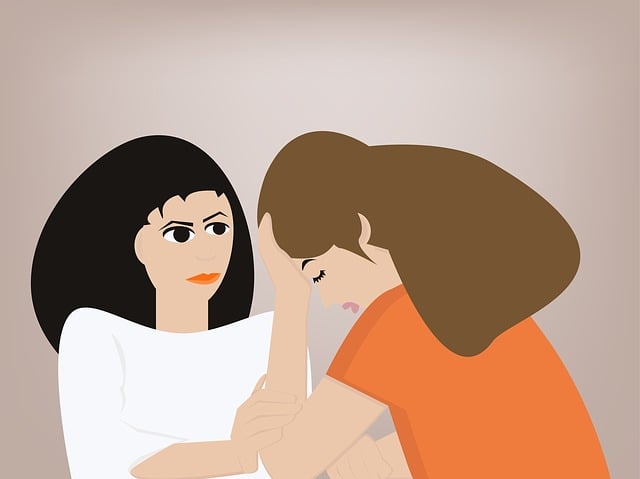Greenwood Village dissociative disorder therapy leverages positive thinking exercises, self-care practices like journaling and affirmations, alongside communication strategies to improve mental health outcomes. This holistic approach promotes emotional regulation, coping skill development, and better interactions for individuals navigating complex trauma-related challenges. By integrating these techniques into structured assessments and tailored support, therapists foster patient-centric success measured by enhanced quality of life and improved emotional well-being.
“Unleash the power of positive thinking as a transformative tool in managing dissociative disorders. This article explores how Greenwood Village Dissociative Disorder Therapy integrates positive thinking exercises into its treatment plans, offering hope and healing. We delve into the science behind its impact on mental health, providing practical strategies for daily practice. From understanding the concept to measuring success, discover how these techniques can be tailored in therapeutic settings, particularly focusing on the unique needs of individuals navigating dissociative disorders.”
- Understanding Positive Thinking and its Impact on Mental Health
- Greenwood Village Dissociative Disorder Therapy: An Overview
- Integrating Positive Thinking Exercises into Therapy Sessions
- Practical Tips for Daily Positive Thinking Practice
- Measuring Success and Adjusting Strategies in Dissociative Disorder Treatment
Understanding Positive Thinking and its Impact on Mental Health

Positive thinking is a powerful tool that can significantly influence mental health and overall well-being. It involves cultivating optimistic attitudes and reframing negative thoughts into more positive ones. This simple yet profound practice has been shown to reduce stress, improve mood, and enhance resilience in individuals dealing with various mental health challenges, including dissociative disorder. Greenwood Village dissociative disorder therapy often incorporates positive thinking exercises as part of a comprehensive treatment plan.
By integrating self-care practices and communication strategies, individuals can develop coping skills that foster positive thinking. These skills enable them to navigate through difficult emotions, promote healthier interactions with themselves and others, and create a more balanced mindset. Incorporating daily affirmations, gratitude practices, and mindfulness techniques are some effective ways to strengthen positive thinking and contribute to improved mental health outcomes, especially when coupled with professional therapy services in Greenwood Village.
Greenwood Village Dissociative Disorder Therapy: An Overview

In Greenwood Village, Dissociative Disorder Therapy offers a specialized approach to addressing complex mental health challenges. This therapeutic method is designed to help individuals grappling with dissociation—a common symptom of trauma—by promoting self-esteem improvement and fostering a deeper sense of integration and connection to oneself. The process involves various techniques, including mental wellness journaling exercises, aimed at guiding patients through their experiences and helping them make sense of their fragmented thoughts and emotions.
By integrating Greenwood Village Dissociative Disorder Therapy into their practice, mental health professionals contribute to the broader Mental Health Policy Analysis and Advocacy efforts. This therapy not only supports individuals in managing symptoms but also encourages them to advocate for their own mental wellness. Through journaling exercises, patients gain valuable insights, enhancing their self-awareness and providing a means to track progress over time. This holistic approach ensures that those affected by dissociation receive comprehensive care tailored to their unique needs.
Integrating Positive Thinking Exercises into Therapy Sessions

Incorporating positive thinking exercises into therapy sessions can significantly enhance the effectiveness of treatment for various mental health conditions, including dissociative disorder in Greenwood Village. These exercises are designed to help individuals cultivate a more optimistic outlook, which is crucial for managing symptoms and improving overall well-being. Therapists can integrate such activities by beginning each session with a brief meditation or affirmations practice, encouraging clients to reflect on their strengths and past achievements. This initial ritual sets a positive tone, fostering a sense of hope and resilience.
For instance, guiding clients through visualisation techniques where they envision successful outcomes or using positive self-talk exercises can empower them to challenge negative thought patterns. Such practices promote emotional regulation and enhance coping strategies, making them valuable tools in depression prevention. Healthcare providers skilled in these techniques can offer tailored support, addressing cultural competency training to ensure inclusivity and effectiveness in treating diverse populations.
Practical Tips for Daily Positive Thinking Practice

Incorporating daily positive thinking exercises is a powerful tool for personal growth and well-being, especially for individuals managing dissociative disorders like those seeking Greenwood Village dissociative disorder therapy. Here are some practical tips to cultivate a habit of optimism: Start your day with a positive affirmation or gratitude practice. Take a moment each morning to reflect on things you’re grateful for, no matter how small. This sets the tone for a more optimistic mindset throughout the day.
Engage in regular self-care activities that nurture your mental health. This could include activities like meditation, journaling, or spending time in nature. The Stress Management Workshops Organization emphasizes the importance of stress management techniques, and practicing positive thinking is a key component. Cultivate cultural sensitivity in your mental healthcare practice by exploring diverse mindfulness practices from around the world, ensuring a well-rounded approach to your emotional well-being.
Measuring Success and Adjusting Strategies in Dissociative Disorder Treatment

In Greenwood Village Dissociative Disorder Therapy, measuring success goes beyond mere symptoms reduction. It involves patient-centered outcomes like improved quality of life, enhanced coping mechanisms, and increased emotional regulation. Therapists can utilize various tools such as structured interviews, self-report measures, and observer ratings to assess progress. These metrics allow for a nuanced understanding of the patient’s experience and provide data-driven insights to refine treatment strategies.
Adjusting approaches is crucial in managing dissociative disorders. Effective communication strategies, integrated with mental health education programs designed for personalized learning, can empower patients to manage their conditions. Empathy building strategies, fostered through therapeutic relationships, help therapists understand the patient’s unique experiences and adjust interventions accordingly. This iterative process ensures that treatment remains relevant and beneficial as the patient navigates their journey towards recovery.
Implementing positive thinking exercises as part of comprehensive Greenwood Village Dissociative Disorder Therapy can significantly enhance treatment outcomes. By integrating these practices into therapy sessions, professionals empower individuals with valuable coping mechanisms to navigate the challenges of dissociative disorder. Daily positive thinking practice, supported by practical tips and measurable success assessment, fosters resilience and promotes mental well-being. This holistic approach to therapy not only addresses symptoms but also cultivates a deeper sense of inner strength and optimism for those seeking recovery in Greenwood Village.














